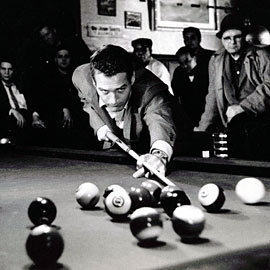Recommended Posts
jcd11235 0
QuoteDo you see anywhere in the Constitution proclaiming that Congress can delegate that authority?
Yes.
From Article I, Section 8:
The Congress shall have Power … To coin Money, regulate the Value thereof, and of foreign Coin, and fix the Standard of Weights and Measures;
…
And
To make all Laws which shall be necessary and proper for carrying into Execution the foregoing Powers, and all other Powers vested by this Constitution in the Government of the United States, or in any Department or Officer thereof.
Are you suggesting that the Federal Reserve was not established by Congress?
QuoteQuoteDo you see anywhere in the Constitution proclaiming that Congress can delegate that authority?
Yes.
From Article I, Section 8:The Congress shall have Power … To coin Money, regulate the Value thereof, and of foreign Coin, and fix the Standard of Weights and Measures;
…
And
To make all Laws which shall be necessary and proper for carrying into Execution the foregoing Powers, and all other Powers vested by this Constitution in the Government of the United States, or in any Department or Officer thereof.
Yes jcd we can all pull up a copy of the Constitution.,
Where do you see that the Constitution allows Congress to sub contract out the coining of money and assigning values of that money?
Blues,
Cliff2muchTruth
jcd11235 0
QuoteWhere do you see that the Constitution allows Congress to sub contract out the coining of money and assigning values of that money?
Where do you see that Congress is "subcontracting out the coining of money?" Is the US Department of the Treasury not a US government entity?
TheMint is , The Federal Reserve Bank is not.
The Federal reserve is as federal as Federal Express and there are no reserves.
The Federal Reserve bank is a consortium of private banking institutions which lend money to the US government at interest.
Congress could also coin the money as is provided in the Constitution. They wouldn't have the need to require interest.
Every dollar of income tax collected since at least 1970 has gone toward paying the interest on the debt to the private Federal Reserve Bank. Not one dime has gone to paying the principal.
Blues,
Cliff
jcd11235 0
QuoteQuoteWhere do you see that Congress is "subcontracting out the coining of money?" Is the Federal Mint not a US government entity?
TheMint is , The Federal Reserve Bank is not.
Three quarters correct. The Federal Reserve System is a hybrid public/private entity. Still, it is the Department of the Treasury that coins money and prints currency, not the Federal Reserve Bank, so I'm not seeing support for your argument that the Federal Reserve Bank is unconstitutional.
QuoteQuoteQuoteWhere do you see that Congress is "subcontracting out the coining of money?" Is the Federal Mint not a US government entity?
TheMint is , The Federal Reserve Bank is not.
Three quarters correct. The Federal Reserve System is a hybrid public/private entity. Still, it is the Department of the Treasury that coins money and prints currency, not the Federal Reserve Bank, so I'm not seeing support for your argument that the Federal Reserve Bank is unconstitutional.
Oh no Mr.
You are very wrong.
The Treasury Department can only borrow money from the Federal Reserve Bank . They have no way to raise money themselves.
I'm sure you've heard of T-bonds or treasury bonds, They are sold to the federal Reserve bank and it is that bank who trades them around.
No dollars are created except through theFederal Reserve Bank ,a private consortium of bankers.
Blues,
Cliff
jcd11235 0
QuoteYou are very wrong.
I think you are confused about what constitutes coining money. That is done by the Department of the Treasury, not the Federal Reserve Banks.
You haven't provided any support for your assertion that the Federal Reserve Bank is unconstitutional. Your claim is based on the false belief that the Federal Reserve Banks coin money, which is not the case, as a little research would quickly reveal.
QuoteQuoteYou are very wrong.
I think you are confused about what constitutes coining money. That is done by the Department of the Treasury, not the Federal Reserve Banks.Quote
Ifyou will look in your wallet you may notice hose bills are labeled as Federal Reserve Notes not US Dollars.
They are created by the Federal Resrve Bank.
Further the vast majority of money in our system is never actually physically printed but is just numbers on a computer screen , created by the Federal Reserve Bank.
Blues,
Cliff2muchTruth
QuoteWhere do you see that the Constitution allows Congress to sub contract out the coining of money and assigning values of that money?
Um. Congress passes laws. That's it. Then the executive branch executes.
Every single thing congress does is subbed out. Please take a look at administratve laws, etc.
Ever see the Code of Federal Regulations? Those are not Congressional laws. It's due to rules enabling laws. Check into them.
My wife is hotter than your wife.
jcd11235 0
QuoteIfyou will look in your wallet you may notice hose bills are labeled as Federal Reserve Notes not US Dollars.
You'll also notice that they are signed by the Treasurer of the United States and the Secretary of the Treasury, but not the Fed Chairman.



Do you see anywhere in the Constitution proclaiming that Congress can delegate that authority?
Of course not! The Fathers weren't so stupid.
Congress is given the power to coin US money.
Why would we need the Federal Reserve, which is a private bank, to coin our money when Congress is supposed to take care of all that?
Do you understand fractional reserve banking jcd? If so you would understand why the Constitution gave the power to coin money only to the Congress.
Blues,
Cliff
Share this post
Link to post
Share on other sites